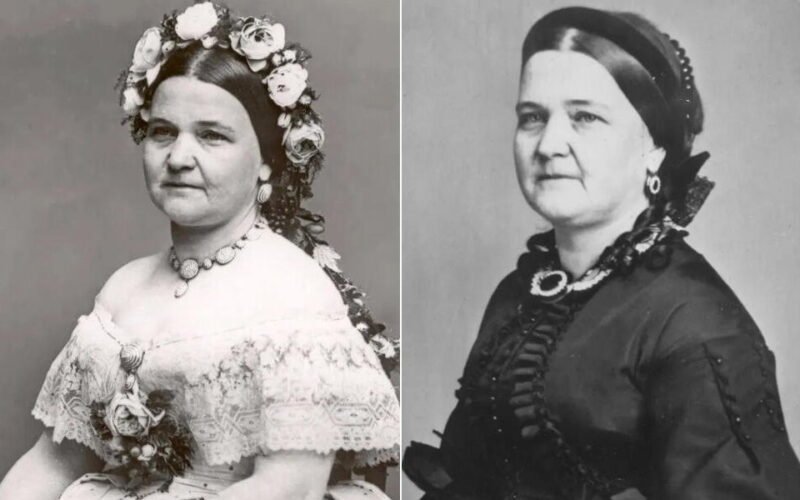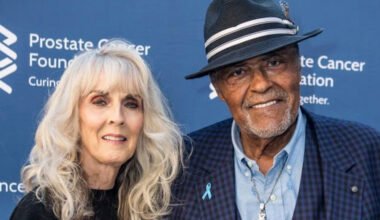Due to his unusual career, military experience, and family ties, historians are interested in George Rogers Clark Todd. His life, set against one of the nation’s most divided times, illuminates devotion, personal conviction, and family and politics throughout the Civil War.
Early Life and Family Background
George Rogers Clark Todd was born in Lexington, Kentucky, on July 2, 1825. He came from the powerful Todd family, known in legal, political, and social circles. Father Robert Smith Todd was a distinguished lawyer and politician, while mother Ann Elizabeth Parker Todd nurtured him to success.
Mary Todd, Todd’s sister, married Abraham Lincoln, the 16th US president, making his family history notable. Todd was connected to one of the most renowned persons in American history, yet he fought for the Confederacy during the Civil War, which added drama to his life.
Family Influences and Early Education
Early schooling instilled duty and public service in Todd. He was raised in a Kentucky household that discussed law, politics, and the nation’s growing divisions. His childhood prepared him for a profession in medicine, which offered intellectual fulfillment and social service.
Medical Career and Professional Development
Physician George Rogers Clark Todd began his medical profession during a time of great change. He got his medical degree from Transylvania University in 1848, known for its rigorous academics and excellent medical training. This schooling prepared him for the complex and quickly changing field of 19th-century medicine.
Professional Practice Before the War
Todd was a skilled and committed doctor before the Civil War. His Lexington, Kentucky, practice won him community esteem and established him as a qualified practitioner familiar with current medical techniques. His medical practice was marked by scientific investigation and caring patient care.
Contributions to Medical Practice
Todd’s career typifies mid-1800s medical progress. His training taught him diagnostics, surgery, and new therapies. Todd’s skills helped his patients and established him as a leader in a rapidly changing medical field.
Civil War Service and Controversies
Todd’s life changed with the Civil War. Todd joined the Confederacy despite his sister Mary’s Union familial ties. He joined the Confederate Army as a physician out of personal conviction and regional devotion, a decision that would define his life.
Role as a Confederate Surgeon
Todd, a Confederate surgeon, lived through one of America’s most difficult times. His medical skills were tested when he treated wounded troops on the battlefield. He worked in an atmosphere where military engagements were fast and battle was severe, requiring quick thought and swift action.
Todd managed a military hospital at Charleston, South Carolina, in 1864. He made rounds at the military jail in addition to medical care. Todd’s conduct were contentious at this time.
Controversial Treatment of Prisoners
Todd was notorious for mistreating Union captives, especially black troops, in Charleston. Historical criticism and discussion have surrounded his violent techniques. His strong disciplinary techniques aroused ethical issues among subsequent conflict scholars, according to time testimony.
His severe approach and acts were typical of several Confederate officials who thought unyielding discipline was required to preserve order among captives. Todd went beyond what many of his contemporaries considered acceptable, and his legacy is one of debate and moral complexity.
The “Unreconstructed Rebel”
Todd’s beliefs and actions did not represent the more conciliatory mood of those who wanted peace after the war. He continued to defend the Confederate cause, unwilling to relinquish the ideals and ideologies he had fought for. He was called a “unreconstructed rebel” for his intransigence in post-war America’s political and social climate.
Personal Life and Later Years
George Rogers Clark Todd’s personal life was as complicated as his military and professional career. His family life was distinguished by several marriages, personal sorrow, and a strong Confederate ideology even after the nation recovered from war.
Marriages and Family
Todd’s marriage represents his time’s turmoil and personal struggles. His first marriage to Ann H. Todd is poorly documented, leaving many facts to guess. He found security in his latter years after marrying Martha “Mattie” Lyles of Camden, South Carolina. They moved to Barnwell, South Carolina, with their daughter Martha Dee “Mattie” Todd. As he practiced medicine post-war, his life was quieter and more home.
Life in South Carolina
Todd’s life changed after the Civil War. As a doctor, he helped reconstruct his neighborhood after war. He maintained his Confederate sympathies, which often clashed with reconciliation and reform. His Camden, South Carolina, home symbolized his dedication to Old South values.
Later Contributions and Legacy
Even while his wartime efforts were debated, Todd continued to contribute to medicine in his latter years. He has decades of professional experience, yet his wartime conduct continues to spark moral and ethical disputes. Todd is a fascinating historical figure since he was a recognized doctor who was both effective and unethical throughout the war.
Legacy and Historical Significance
George Rogers Clark Todd’s biography illustrates Civil War citizens’ complex struggles. His legacy is braided from professional skill, personal convictions, and controversial wartime acts. Following factors emphasize his life’s lasting significance:
Duality of Character
Todd lived in striking contrasts. On one hand, he was a diligent doctor who advanced medicine. On the other hand, his Confederate surgeon work and brutal prisoner treatment tarnished his legacy. This dualism represents the era’s struggles between personal values, professional commitments, and political affiliations.
Impact on Historical Narratives
Civil War tales of virtue against evil are complicated by George Rogers Clark Todd’s account. His life shows how people can be both progressive and harsh. Historians must confront difficult problems about morality, duty, and the cost of devotion in national crises because of his complexity.
Reflection of a Turbulent Era
Todd’s Confederate sympathies, despite his family’s Union ties, illustrate 19th-century America’s deep geographical and ideological distinctions. His acts during the war and the epithet “unreconstructed rebel” show how severely the war affected every element of American culture, leaving generations-long wounds.
Summary Table of Key Life Events
| Event | Details |
|---|---|
| Birth | July 2, 1825, in Lexington, Kentucky, USA |
| Education | Earned a medical degree from Transylvania University in 1848 |
| Profession | Practiced as a physician before and after the Civil War |
| Civil War Role | Served as a Confederate surgeon; gained notoriety for harsh treatment of Union prisoners, especially black troops in 1864 |
| Family Ties | Brother-in-law to President Abraham Lincoln through his sister Mary Todd |
| Later Years | Lived in South Carolina; continued his medical practice while maintaining staunch Confederate sympathies |
| Death | Died on April 28, 1900, in Camden, South Carolina |
| Burial | Laid to rest in Quaker Cemetery, Camden, South Carolina |
Lists of Contributions and Controversies
Contributions
- Medical Innovation: Leveraged advanced medical education to provide critical care during one of America’s most turbulent periods.
- Professional Service: Maintained a successful medical practice before and after the Civil War, contributing to community health and recovery.
- Historical Insight: His life and career provide valuable perspectives on the complexities of loyalty and identity in wartime America.
Controversies
- Treatment of Prisoners: His conduct in the military prison in Charleston, particularly toward black Union troops, has been the subject of ethical debates.
- Uncompromising Beliefs: His refusal to abandon Confederate ideals post-war, even in a climate of national reconciliation, remains a contentious aspect of his legacy.
- Family Dissonance: The stark contrast between his Confederate actions and the Union legacy of his brother-in-law, Abraham Lincoln, continues to provoke discussion among historians.
Reflecting on His Enduring Legacy
George Rogers Clark Todd exemplifies the Civil War’s inconsistencies. His medical accomplishments are undisputed, but his behaviors continue to divide researchers and fans. His biography shows how personal commitment can elevate or ruin a legacy and how family, politics, and duty can lead to unclassifiable consequences.
Todd illustrates war’s moral complexities for modern readers and historians. His staunch support for the Confederacy despite his close family links to one of the nation’s most renowned presidents illustrates the terrible realities of a divided society. It also shows that history is made up of people whose lives were shaped by the stormy times.
FAQ
What was George Rogers Clark Todd’s primary profession?
George Rogers Clark Todd, a physician who graduated in 1848, practiced successfully before and during the Civil War.
How is Todd connected to Abraham Lincoln?
His sister, Mary Todd, married Abraham Lincoln, making Todd his brother-in-law.
What role did he play during the Civil War?
Todd was a Confederate Army physician. He ran a military hospital in Charleston, South Carolina, in 1864 and was known for mistreating Union captives, especially black troops.
Why is Todd considered a controversial figure?
Todd is controversially remembered as a “unreconstructed rebel.” He brutally treated Union captives during the Civil War and was a staunch Confederate.
How did his personal life influence his legacy?
Todd’s complicated family life and several marriages shaped his public character. His ancestral ties to Abraham Lincoln and Confederate loyalty muddled his reputation and continue to spark historical controversy.
What can we learn from Todd’s life?
George Rogers Clark Todd’s life shows how complex and conflicting historical personalities are. His history shows how difficult it was to balance professional success with contentious personal activities during one of America’s most polarizing times.
How is Todd’s legacy relevant today?
Todd’s life illustrates devotion, moral complexity, and war’s human cost. His narrative prompts contemplation on history’s intricacies and how individual actions might shape communal memory.





